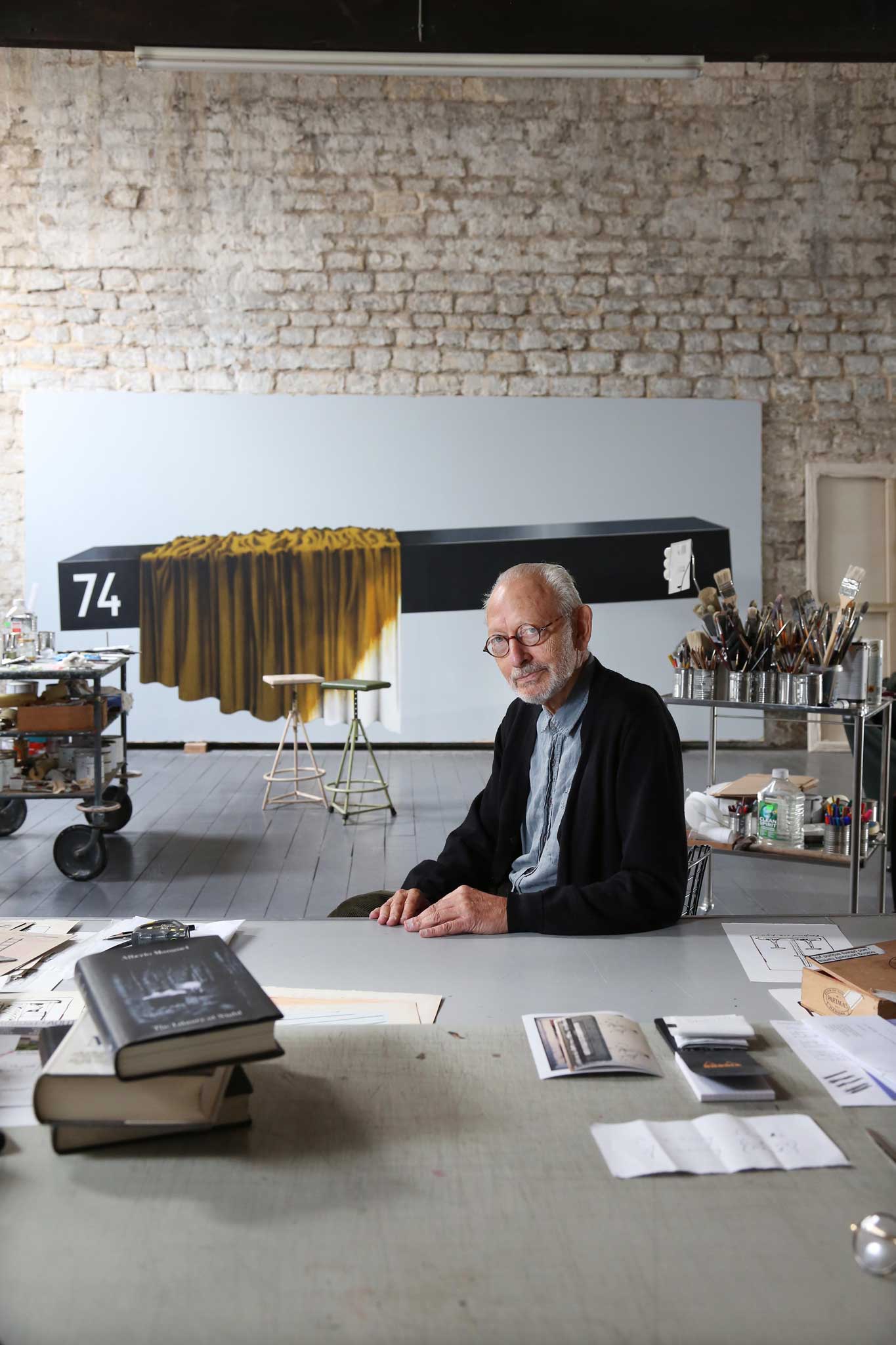In the studio: Michael Simpson, painter
"It is hard enough to paint without loading it up too much with meaning'

Your support helps us to tell the story
From reproductive rights to climate change to Big Tech, The Independent is on the ground when the story is developing. Whether it's investigating the financials of Elon Musk's pro-Trump PAC or producing our latest documentary, 'The A Word', which shines a light on the American women fighting for reproductive rights, we know how important it is to parse out the facts from the messaging.
At such a critical moment in US history, we need reporters on the ground. Your donation allows us to keep sending journalists to speak to both sides of the story.
The Independent is trusted by Americans across the entire political spectrum. And unlike many other quality news outlets, we choose not to lock Americans out of our reporting and analysis with paywalls. We believe quality journalism should be available to everyone, paid for by those who can afford it.
Your support makes all the difference.Michael Simpson hates the word artist almost as much as he hates the word art. He is not ashamed to call himself "merely" a painter. Based in Bradford-on-Avon, Wiltshire, near to where he taught for many years at Corsham art college, he has been in this current studio space, a former gas works, for 30 years.
The studio is dominated today by two enormous 30ft-by-9ft paintings. These are part of his ongoing series investigating benches that he embarked on in the late 1970s and has been pursuing ever since. "Meditation" is what I would call them, but he rejects the word when I put it forward. Nor does he like the word "surreal", which I also suggest in regard to the floating water drain poised in mid-air. "I prefer to think of these paintings in formal terms," he says. "It is hard enough to do the job of painting without loading it up too much with meaning."
Simpson has had a rich and full life. Born in 1940, as a student at the Royal College of Art he shared a room with David Hockney. "Do you want the sordid details?" he asks. "I can say that David had the thinnest arms that I have ever seen."
Teaching at Corsham at the same time as, among others, Howard Hodgkin, with dedicated students including Glenn Brown and Clare Woods, he has been a quiet figure in the painting world for a long time. There is a rigour in his painting that I see in Brown's work, and when I ask about it, he replies, "Yes, Glenn was a stand-out student who was dedicated and hard working." He pauses before continuing, "I still remember talking to him about science fiction", something that has fed into Brown's work in the past.
We are talking across a large table, Simpson's head framed by shelves filled with intriguing books. He is obviously a bibliophile. Through an archway is his library; nearby stands a pile of small drawings he had been working on in the morning, ideas for another series of paintings, this time of confessional boxes.
Religion, or the "rejection" of organised religion, has dominated his thinking for many years. He was raised as Jewish, although the "horror" of his bar mitzvah led to his intellectual pursuits of atheism, something that he embraces today. It was his studies of the medieval philosopher Giordano Bruno, burnt at the stake during the Inquisition, that led to the bench series.
Simpson never knew his father, who had deserted his mother before his birth. He was raised by women as his mother had eight sisters, "simple" but "good" women who did not pursue intellectual pursuits – "there was not a book in the house". Simpson recalls his experiments with gravity, going into the back yard and tossing things up in the air. "I hated the fact that they kept falling down." When I laugh, he says seriously, "No, I really hate gravity."
Join our commenting forum
Join thought-provoking conversations, follow other Independent readers and see their replies
Comments